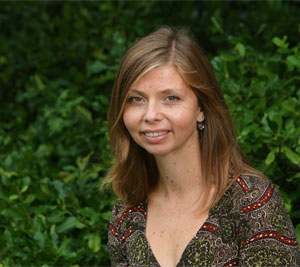 |
| Professor Claire Campbell is coordinating the MacKay lecture series this year. (Nick Pearce Photo) |
With the new College of Sustainability launched this past spring and the first undergraduate classes in Environment, Sustainability and Society starting this month, it seems more than timely for this year’s MacKay lecture series to focus on the theme of sustainability.
The MacKay Lectures are supposed to be an academic series, but with wide public appeal— “Not only is sustainability ubiquitous in public discussion right now,” says history professor Claire Campbell, coordinator of the series, “but it’s got people’s attention at the university level, so we thought it would be the perfect topic.”
“What I love about environmental history,” muses Dr. Campbell, “is that it’s a day-to-day thing. My academic work isn’t disassociated from my citizenship or from my life on the planet.”
Dr. Campbell is a part of the College of Sustainability, and one of the professors for the first-year class. This lecture series is also doubling as an instalment of the mandatory weekly evening lectures for the first-year Sustainability 1000 class, which is exciting for many reasons.
The students will be exposed to speakers from across North America, as well as to the diversity of how people in the arts and social sciences can apply their work in ways that have real presence and relevance for the community outside of academia. The three sustainability lectures focus on geography and environmental history; ethics, equity and human rights in the field of environmental justice; and the politics of agriculture, specifically food security and international trade. The speakers – Graeme Wynn, Robert Melchior Figueroa, and Kathy McAfee – will be talking about sustainability with an eye to the past, present, and future, covering a range of disciplines and perspectives.
Dr. Campbell wants to get the community at large involved: “If we can draw audiences for this kind of information and event,” she says, “then we’re doing a public service. We should be doing things that make the community feel invested in us and feel like they can be participating in our activities.”
The MacKay lectures are named for Gladys and Rev. Malcolm Ross MacKay. Mrs. MacKay donated generously to show her appreciation of the education that her husband received at Dalhousie in 1927. This funded the lecture series, and influences the choice of topic for the lecture series: his degree was in history, so every year the organizers ensure that there is some historical component to the lectures.
For more information, contact Claire Campbell of the Department of History/College of Sustainability at 494-3668.
2009 MacKay Lecture SeriesLecture One – Lecture Two – Lecture Three – There is a fourth lecture in the series specifically dedicated to an historical topic. Taking place on Oct. 15, it is entitled “Mapping Identities: Food and the Creation of Boundaries” with Sami Zubaida, Professor Emeritus of Politics and Sociology, Birbeck College, London. |
